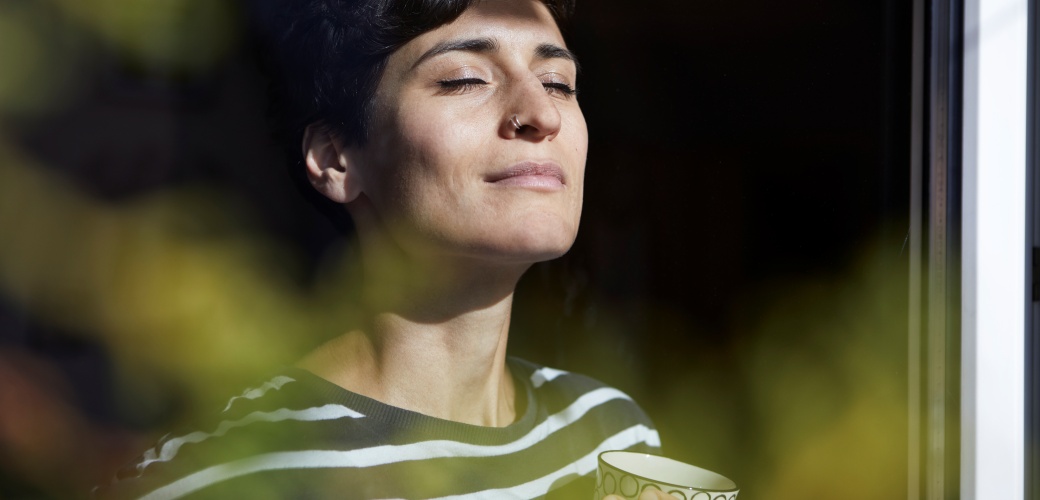
Sunlight
Chocolate and sun, both make us happy!
During months of little sunlight, many people suffer from the winter blues. On the brighter side, there are ways to overcome this temporary gloom.
If you live near the equator, then you will probably have a hard time relating to the problems described in this article. Simply put, you live in an environment where neither you nor the people around you have experienced them. It's about gloomy moods, lack of motivation, fatigue and having a vitamin D deficiency during a dark winter season. It's called the winter blues, and in some cases, winter depression. Either way, it’s triggered by a lack of light.
We have known for some time, long before our modern civilization, that there are people who are "crankier" than others during winter. Hippocrates (460–370 BC) already described the effects of sun and light on people in his book “On Air, Water and Places”. He wrote about the fact that people from sunnier regions of the world were more positive in mood and character, and less affected by diseases.
The effects of the sunlight
The sun puts us in a good mood. There’s no question about that. When there is little sunlight, we can get down in the dumps. That's true for many people. During the winter, we simply don't get enough sun and daylight. Consider mornings that are still dark when most people leave their house. And when they come home, it’s dark again. The time in between is spent inside at work, usually in an office, with artificial light, making us miss seeing our sun the few hours it decides to shine.
We don’t only wish we would have more time in the sun. Our physical body also notices something is missing. If we take a look at the effects sunlight has on health and wellbeing, we know right away that too little of it has a negative impact on us:
- Sunlight stimulates breathing, blood flow, circulation and metabolism
- When there is enough sunlight, the body releases the happy hormone serotonin, which improves people’s mood and makes them more balanced, satisfied and happy
- Sunlight inhibits the formation of the sleep-inducing hormone melatonin
- Sunrays stimulate the formation of nitric oxide in the skin promoting the dilation of blood vessels. This reduces arterial pressure and lowers blood pressure, reducing the risk of a heart attack or stroke in the long term
After a certain period of time without sunlight or daylight, our vitamin D resources will become deficient. The body produces enough of it in the summer. Yet during winter’s short days, when the sun rarely shines, our body’s storage of vitamin D empties. We are more likely to get sick. We are more likely to be in a bad mood and feel down in the dumps.
It’s also important to listen to our internal clock’s ticking. During the summer, our body literally absorbs the light of the sun. This kicks in the hormones in our body that help us to get through the day wide awake, full of energy and feeling healthy. When it is bright outside, our body accumulates and releases serotonin and cortisol preventing the sleep hormone melatonin from being produced and released. The happy hormones come out on top.
The winter blues
Relationships change in winter. For example, the pineal gland releases the hormone melatonin during the night and is the biological signal for darkness in our day-night rhythm. The amount of melatonin that is being released is dependent on the amount of exposure to light. The less daylight, the more will be produced. When this happens, we can be overwhelmed by fatigue and have a hard time getting going. It’s as if we live in hibernation.
All this leads to seasonal mood swings, lack of energy, sluggishness and exhaustion. In most cases, though, it’s not labeled as winter depression. Experts talk about winter blues, or subsyndromal SAD (seasonal affective disorder), which occurs intermittently, and not over a longer period.
However, if these symptoms last over a longer period of time, at a specific time of the year and more symptoms show up, e.g. depression, irritability, pessimism, and feeling out of sync, then experts talk about treatment and therapy for winter depression. If you experience these signs, it is advisable to visit your doctor to plan a possible treatment plan. According to the German Depression Aid Foundation, compared to usual depression symptoms, atypical symptoms are food cravings and increased sleep instead of loss of appetite or falling and staying asleep disorders. More information in german language can be found here: German Depression Aid Foundation
Now back to winter blues. What can you do about it?
Do you ever ask yourself why you crave chocolate, candy and sugar, especially in the dark winter months? The answer can be found above. You are lacking the happy hormone serotonin. And when you enjoy a piece of chocolate, you are giving yourself a reward and making yourself feel good.
“Chocolate makes you happy” is really true. Even though, this has less to do with the ingredients in chocolate and more to do with memories and the pleasant feeling you have when it melts in your mouth. There is no need to justify yourself. Feeling happy is what counts.
However, we shouldn’t go overboard with our sweet tooth. Especially in winter, when people tend to move less and eat differently, it’s important to make sure we have healthy diet. The body needs vitamins to fight the winter blues. Your “wellbeing” will thank you when you eat nutritious food, such as fruit and vegetables.
There are other things you can do to help your body and mood be energized in winter:
- Exercise on a regular basis. Exercise feels good and is healthy. Ideally, go outside. Ride a bike, go for a walk, jog or spoil yourself with a skiing vacation in the mountains.
- Enjoy outside engulfed in daylight. Try to take 30 to 60 minutes to go outdoors and move. The sun doesn’t need to shine. Even when it’s cloudy, you’ll have much more benefit than what indoor artificial lighting can give you. Take a walk for your soul.
- Treat yourself to light therapy. Special lamps with 2,500 - 10,000 LUX can brighten your mood. It’s best to take a “light” shower in the morning between 7 and 10 a.m. With the highest LUX number, 30 minutes a day is enough to feel better. Trick the brain and pretend the sun is shining. But light therapy is not a full replacement for daylight. If you have any skin and eye problems, you should speak to your doctor in advance about which light therapy is the best for you.
- Take vitamin D supplements to fill your reservoir. Talk to your doctor beforehand about this too, so that you can determine whether you are deficient in vitamin D.
- Fill your space with pleasant smells. Fragrances that you like have a positive effect on your mood. And many fragrances have additional benefits. Lavender has a calming effect, while citrus is more stimulating.

